Oyv and I have travelled in about 70 countries now. That’s a little more than one third of all the countries in the world. We’ve seen a lot of amazing things and met a lot of great people. But now we can safely say that the people of Sudan are some of the friendliest, warmest and most hospitable people we’ve encountered.
Traveling by bus from one town to the next we’re struck by how welcome and truly comfortable we feel here. When we walk around town, people smile and wave or come up to us in the street for introductions. They try to start conversations or ask us to take their photo. We stop to chat and small crowds gather.
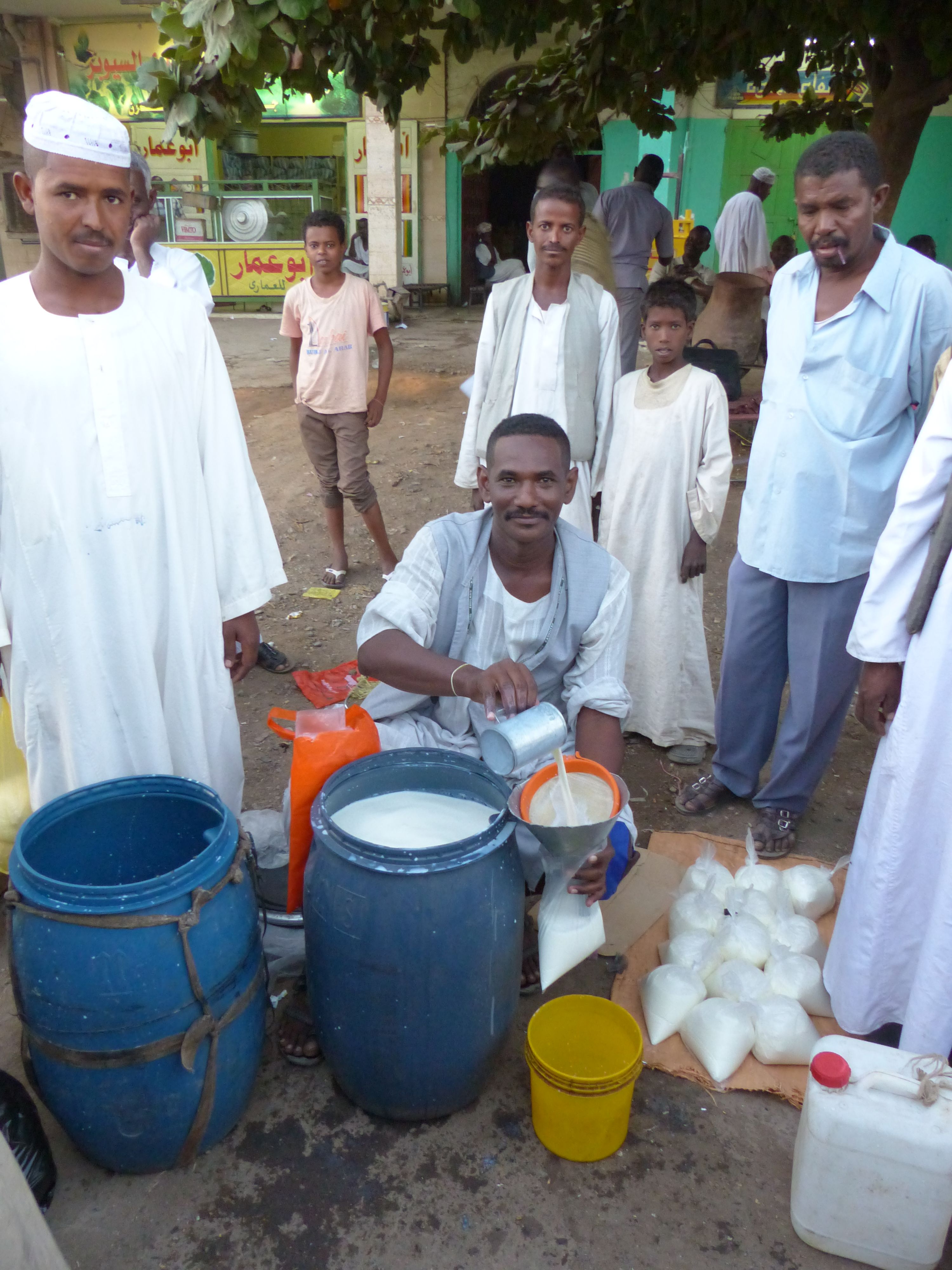
Sometimes a passing motorist will pull over so all the passengers can shake hands and introduce themselves. Luckily for us mostly everyone is named Mohammed.
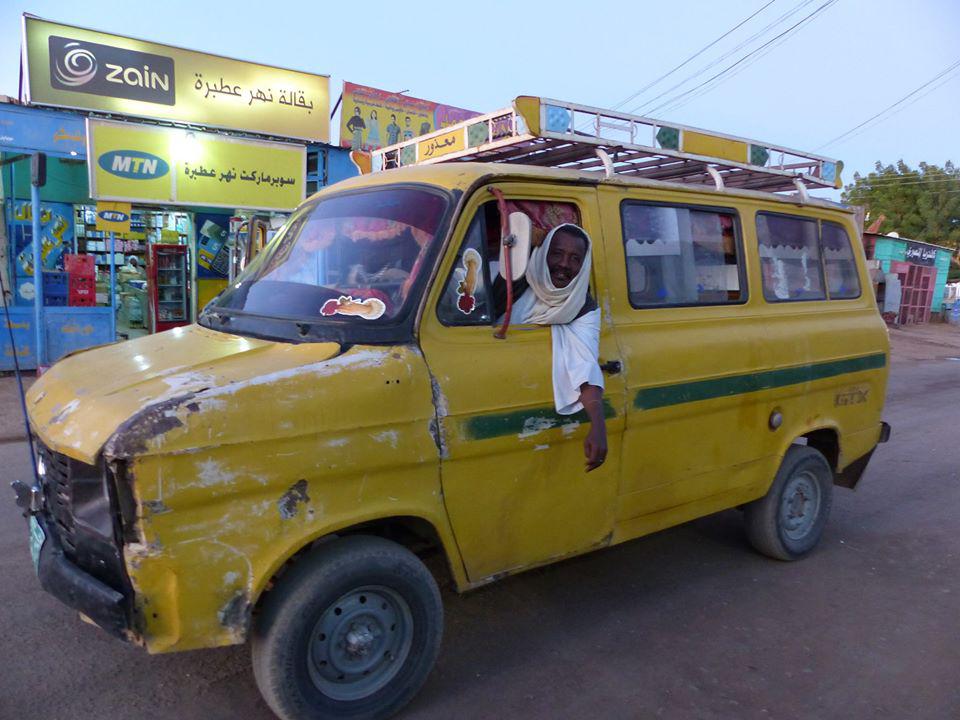
Once a man almost hit me with his car in his enthusiastic bid to roll down the passenger side window and give us the thumbs up.
We’ve realised that in this country we aren’t seen as ‘walking wallets’ (kind of ironic since we’ve each got 1000 USD on us). We can always find a kind stranger ready to take us under their wing. There is no hassle, very little haggling, and no shouts of ‘special price for you!’. This is one of the very safest countries in Africa in terms of personal safety, theft or street crime. Don’t get me wrong- we are carrying a lot of cash and some electronics and we don’t leave those things lying around. But I’m pretty sure we could if we wanted to.
Drinking tea is possibly the foundation of this entire society. Teahouses abound in every street and if that’s not enough, there is a teastall on almost every corner. These are nothing more than some plastic chairs grouped around a charcoal fire going in a metal drum next to a large chest with a range of jars and pots and a jumble of cracked glasses.
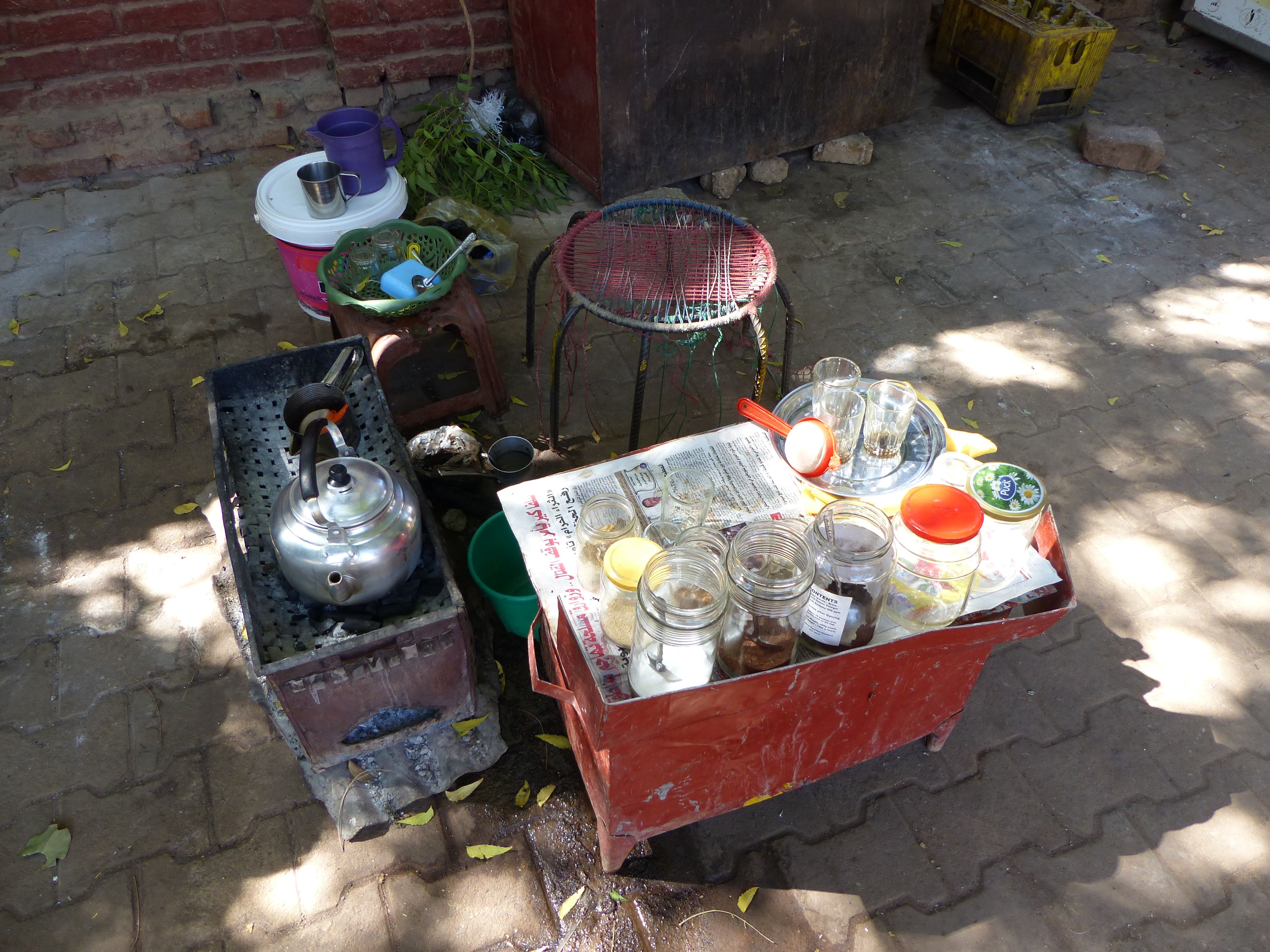
A woman (or in some parts of the country, a man) sits behind the chest, brewing and filtering, stirring, making change and rinsing glasses in a pail of water between customers (neither one of us has gotten sick yet and hopefully won’t – Insh’allah).
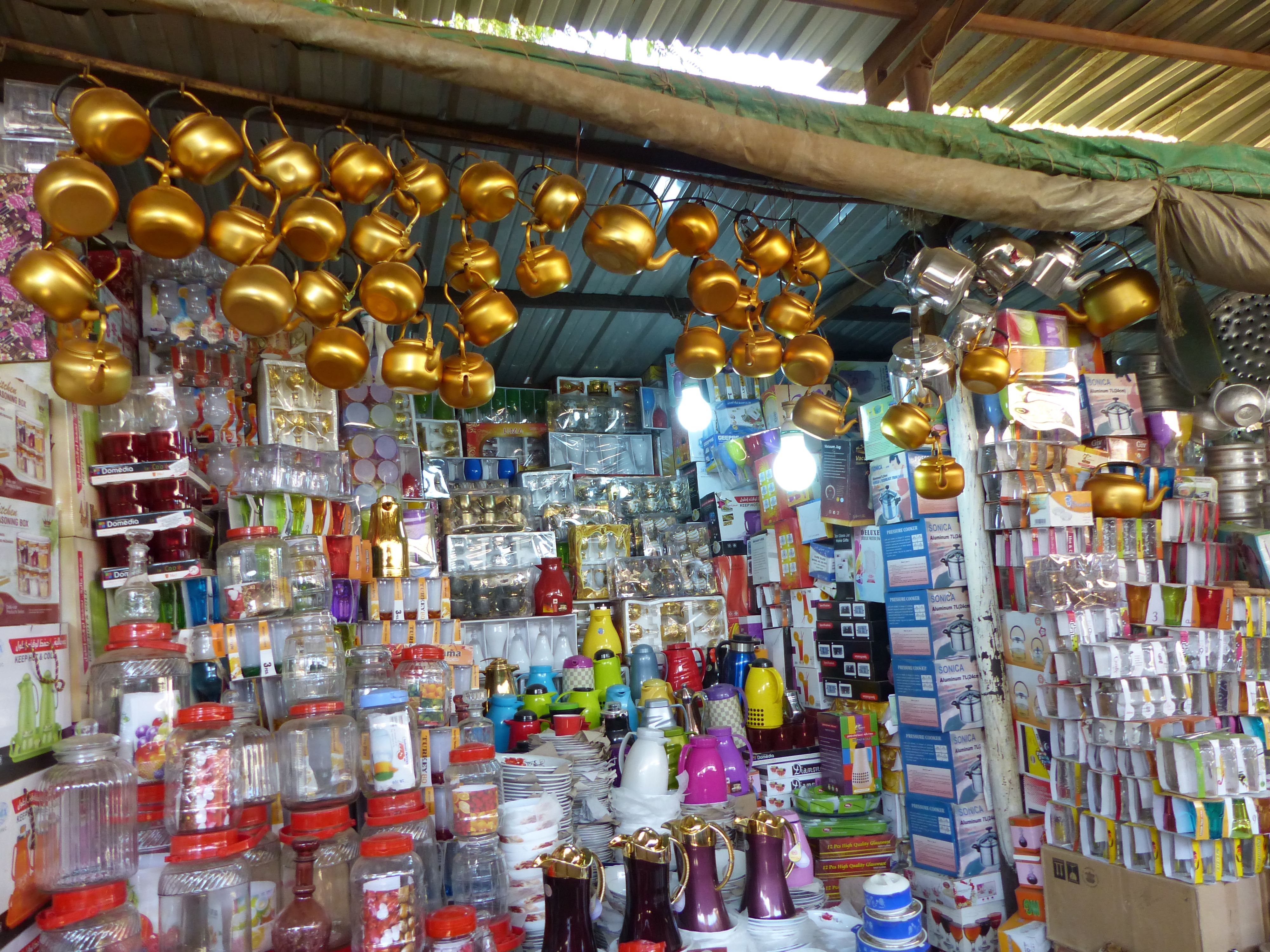
These places are definitely the social scene in any town and we never fail to meet friendly people every time we sit down.
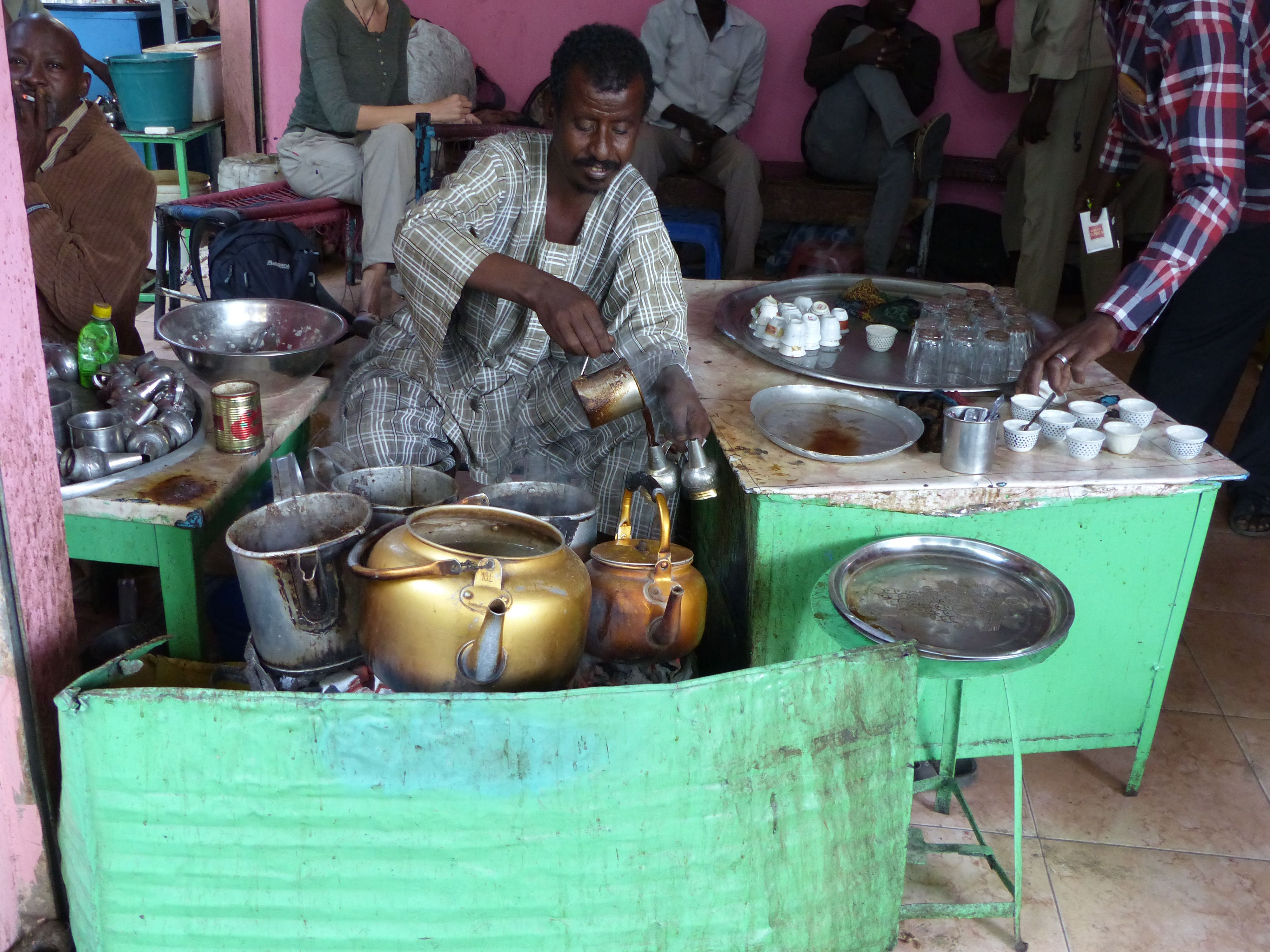
We visit teastalls several times a day and rarely end up paying for our orders because another tea-drinker insists on getting it for us, saying ‘Welcome, welcome’. Our attempts to speak Arabic in these settings, via our phrasebook, are always met with huge encouragement, enthusiasm, patience and a fair bit of hilarity. Our guidebook gets passed around, we take photos, and whenever we meet an English-speaker we ask as many questions as we can think of.
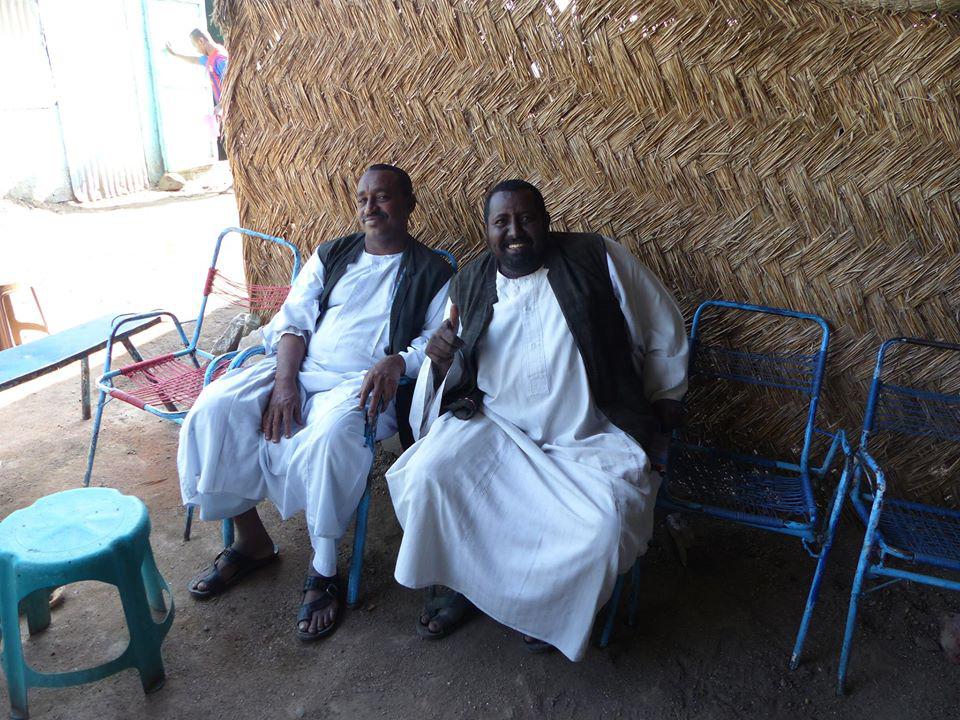
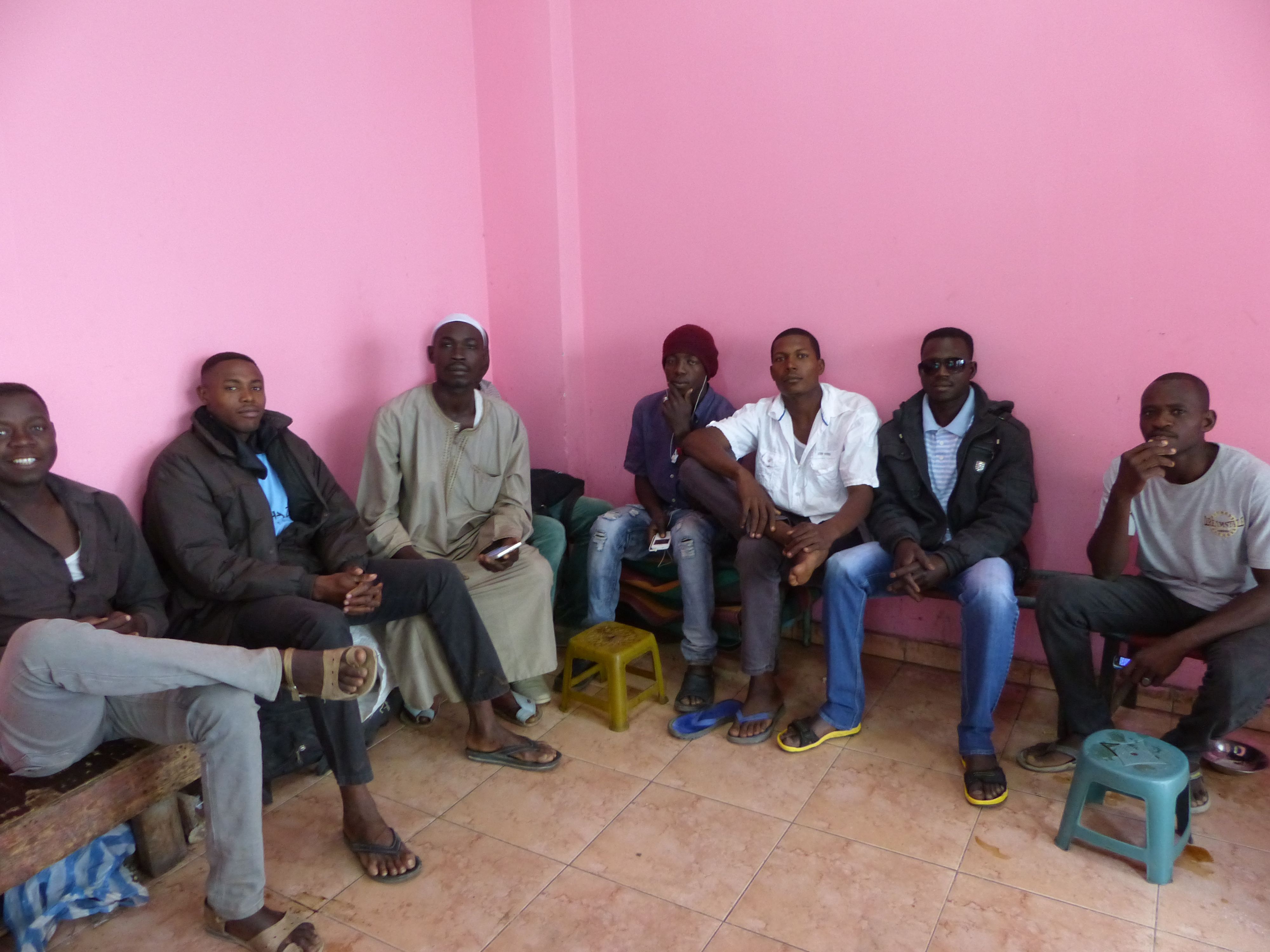
Many Sudanese have explained to us that as visitors to their country they see us as their guests. One polite protest when someone offers us tea, buys our lunch, treats us to icecream or pays our bus fare is enough. After that, we can just smile and happily accept. Actually they have a saying for these situations, which we learned from ‘The Englishman’ a local English teacher in Gederef: ‘If you don’t take this, I’ll divorce my wife.’ As a guest I appreciate the sentiment, if not as a wife.
One of our favorite dinner invitations took place when we walked by the fire-and-police station in Karima. Five or six officers in the courtyard scrambling eggs in a giant wok waved and called to us from a distance – from behind a wall in fact – and signed that we should join them. And so we did, standing in the station yard around the table, all of us digging into the eggs in the pot with pieces of bread. These guys were really friendly too of course, so I was only mildly uncomfortable when one of them pulled an AK-47 out from under the table and casually waved it around.
The reason for all this interest in us is fairly obvious: there isn’t exactly an overwhelming number of travelers here. Word on the street in two different towns is that a Belgian couple and a Frenchman passed through ahead of us. I caught a glimpse of one of them in Dongola when the hotel keeper ran out into the street saying to me ‘I think your husband just went by.’ As it turned out though, it was not Oyv but instead ‘a different white guy.’ We also heard of an 80 year old German woman named Hanna who seems to be taking the country by storm. She’s backpacking in Sudan on her own. I spoke to her on the phone: Magzoub called her. He called her often, to check up on her.
Few travellers means that when we visit tourist sites we have them almost completely to ourselves. Like when we went to the Meroe pyramids (ca. 800 BC), a funerary complex from the ancient Kingdom of Kush:
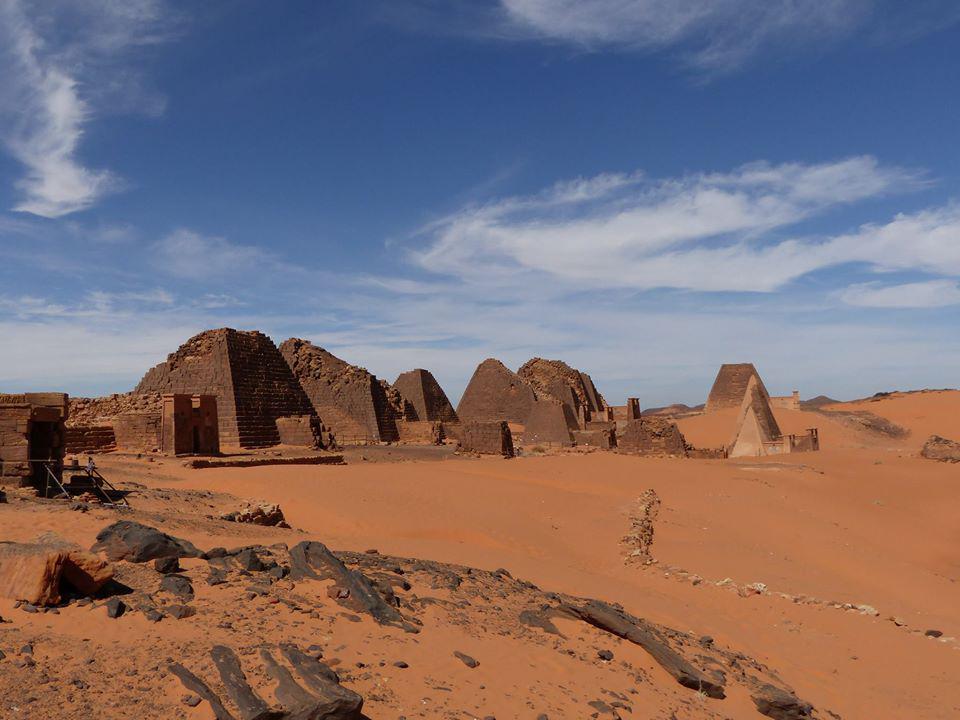
Or Jebel Barkel, a ‘Holy Mountain’ we climbed up for its panoramic views over Karima:
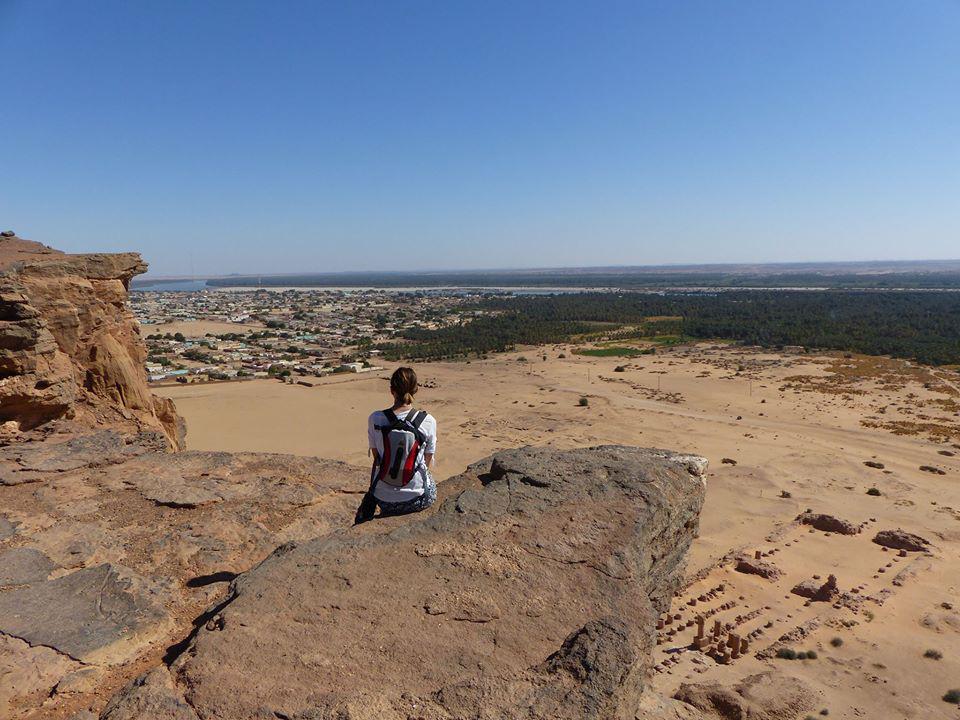
It also means limited tourist infrastructure, which brings to mind another tip for my Beginners Guide to Sudan:
- Ad-hoc Transport. We took a bus out to the village near the Meroe pyramids, knowing there was no bus back. So that left hitch-hiking: we hadn’t stood on the side of the road more than 5 minutes before a passing truck picked us up. The driver, Noor, took us 3 hours back to the outskirts of Khartoum. There we caught a crowded minibus and rode standing in the open doorway the rest of the way into the city.
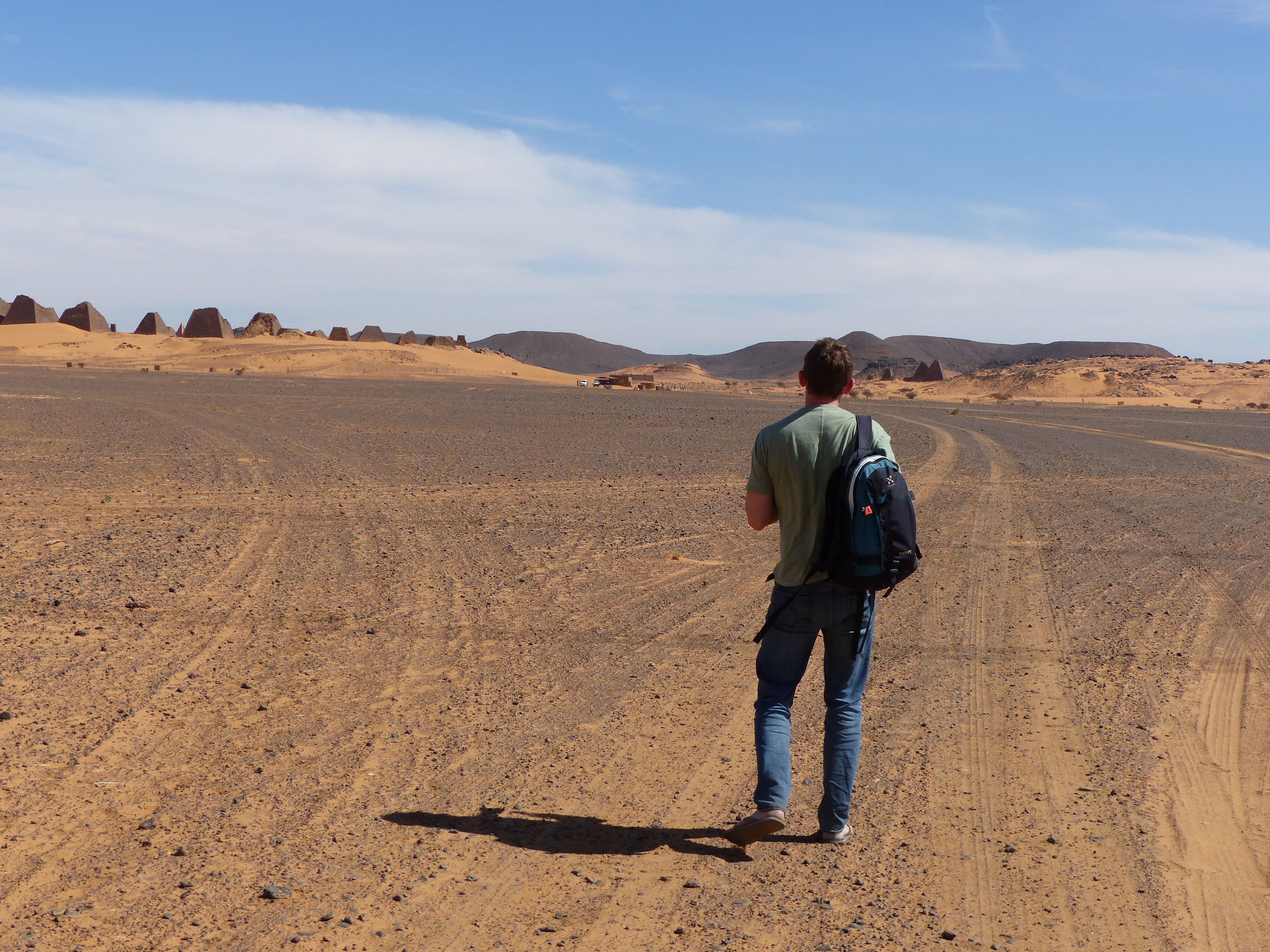
Many people shy away from Sudan. It’s a relatively unknown country struggling to recover from a very long civil war that ended tentatively in 2005 and finally in 2011 with the separation of some southern states to form a second country, South Sudan (which is now having its own civil war). The president is a military dictator. There are ongoing clashes in the area bordering Eritrea in the east. The conflict in Darfur – once declared the world’s worst humanitarian crisis – continues. But these places are far away from the part of the country we’re travelling in, which has been peaceful for several years. It feels a world away from the violence – according to locals themselves, who wonder why the past still keeps Westerners away. And so they’re glad to see the ones who do visit.
And of course, not everything is sunshine and sand and sweet tea. Sudan’s got an almost insurmountable obsession with red tape and bureaucracy. We had to apply for the visa – twice – and pay for it – twice – and wait for an official ‘ok’ from Khartoum which in the first case just never came. We’ve had to register with the police in Dongola which took the better part of a morning; pay a big registration fee; register with the local security in Karima; and have our passports scrutinsed and copied; and just yesterday a security officer tried to extract a payment from us for the stamp on our bus tickets that allows us to leave town. He called it ‘immigration permission’. I pointed out that we weren’t immigrating anywhere at all; we’re travelling between two towns in the same country. He and his two friends tried to squeeze us but we stood firm and refused to pay, til they gave up and waved us out. We’ve heard that plainclothes security like to keep an eye on foreigners. Some of the officials we deal with seem really disgruntled. Others are more relaxed, or maybe just tired out by all the paperwork, like this security officer we met:
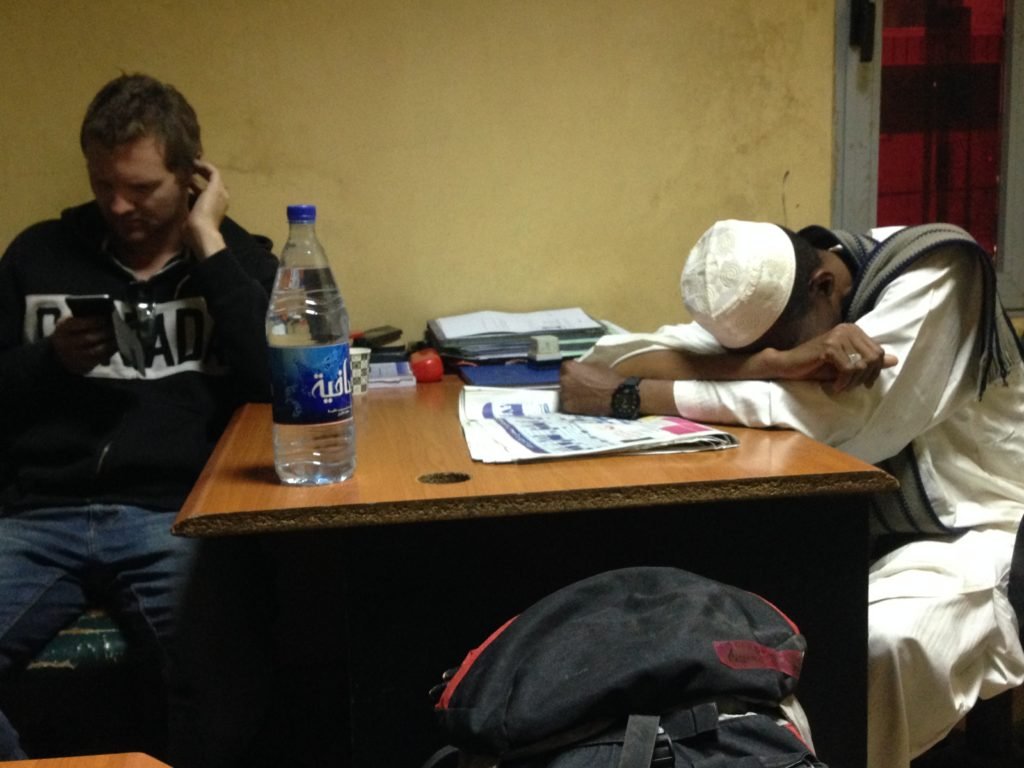
We also notice a general absence of women and segregation by gender. Men are always out and about, socialising and working together. But women seem to be largely at home or out of sight – although we do see them together in Khartoum. As a foreign woman I’m given some leeway – and the dubious distinction of an ‘honorary man’. I can go into the teashops, something local women never do.
But I still have to lurk outside mosques in my headscarf while Oyv goes in to look around. And we wonder if the country’s Sharia law is one of the reasons we feel so safe.
But things like these don’t have to stop foreigners from visiting.
The bottom line is we’re so very glad we came now, while we can still experience this wonderful country unspoilt by tourism. We’re certain our time here will be one of the highlights of our overland trip in Africa.
Read More
For more of our adventures (and misadventures) in Sudan, check out the rest of my stories from the road.
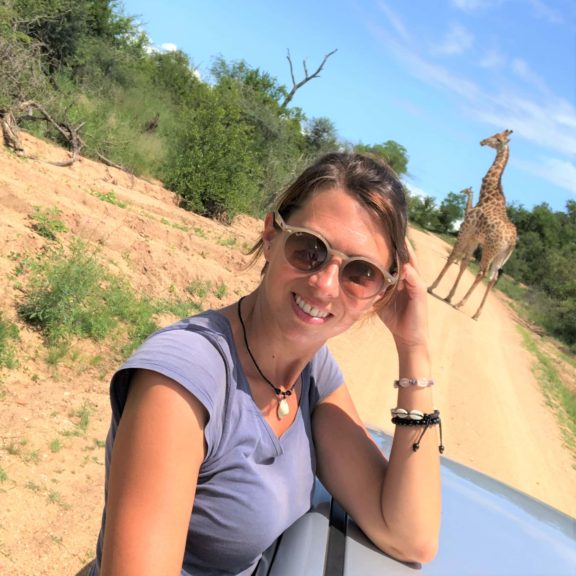
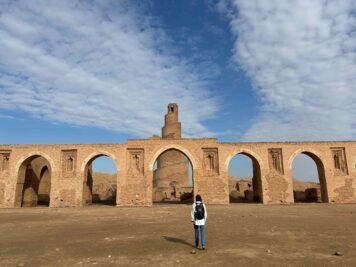
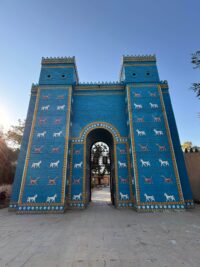
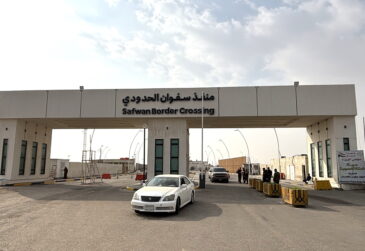
This Post Has 8 Comments
Great blog. Thanks for sharing! Very beautiful photos. It’s great that the people there are friendly!
Hi Sarah
I have a few friends native that have invited to me did you find it all safe?
We did, but this was a few years ago and not during the current situation.
That’s so beautiful.. reading this about my country brings tears to my eyes, i laughed loud and cried alot as it brings so much memories for my people and places that we’ve lost. Thank u for such words, sending u love from Sudan♥️
Thank you, and the wonderful people of Sudan who made us feel so welcome! We’ll never forget it. We’re so saddened by what’s happening there, and hoping for a better future someday♥️
The land of Sudan is holy and protected, the loving, socializing, and hospitable people who offer help without waiting for rewards, the only people in the world who never beg foreigners.
Sarah, what a deep joy it was to read your heartfelt reflections. Thank you so much for sharing your journey through Sudan with us.
As a Sudanese who was forced to leave in the most recent conflict, your words brought me to tears, as I long for home every day. Our hearts ache with every mention of Sudan.
Thank you for such a beautiful read, and for giving us this space to be vulnerable and remember the days gone by.
Sending you love, and utmost gratitude.
Thank you, too, and for your kind words. I’m grateful I got the chance to experience your beautiful home and hope you’ll be able to return there, someday.